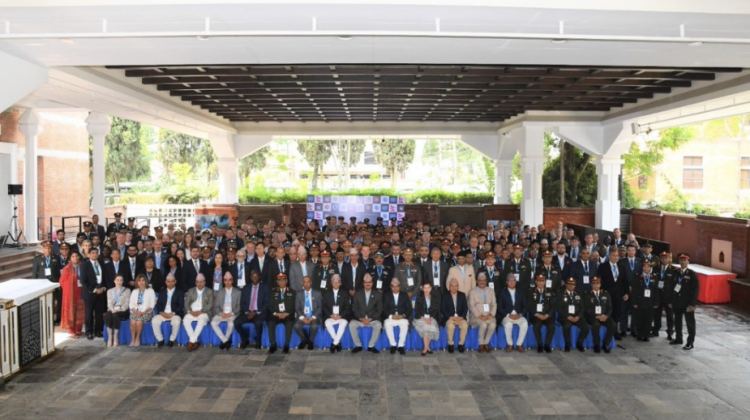Technology for the Digital Transformation of Peacekeeping
The Seventh Partnership for Technology in Peacekeeping International Symposium was held last week in Kathmandu, Nepal, by the Department of Operational Support (DOS) and the Office of Information and Communications Technology (OICT). It was hosted in cooperation with the Government of Nepal and the Department of Peace Operations (DPO).
The Partnership for Technology in Peacekeeping International Symposium provides a platform for leaders and experts from the United Nations, Member States, and academia, who are committed to identifying strategic challenges in peace operations and initiating projects with the potential to quickly impact peacekeeping through real solutions.
While the work of the Partnership for Technology in Peacekeeping initiative is carried out during the year, the symposium serves as the cornerstone for engagement among the UN, Member States, and academia for partnership opportunities.

The event included approximately 250 delegates. Nepal was represented at the Ministerial level. The theme of this year’s symposium was Harnessing Technology for Digital Transformation.
The focus was on aligning technology deliverables with the objectives of the Department of Peacekeeping Operations’ Digital Transformation Strategy. The following five priority areas were examined in depth:
- Leveraging Technology to Protect Peacekeepers
- Information-Driven Peace Operations
- Integrated Training and Capacity Building
- UN Smart Camps
- Telemedicine
The UN delegation was led by Atul Khare, Under-Secretary-General for Operational Support, and included a keynote speech by Bernardo Mariano, Jr., UN Chief Information Technology Officer.
The Partnership for Technology in Peacekeeping has been instrumental in implementing impactful projects with a wide range of peacekeeping partners, and delivering technology solutions to address key challenges facing United Nations field operations.

